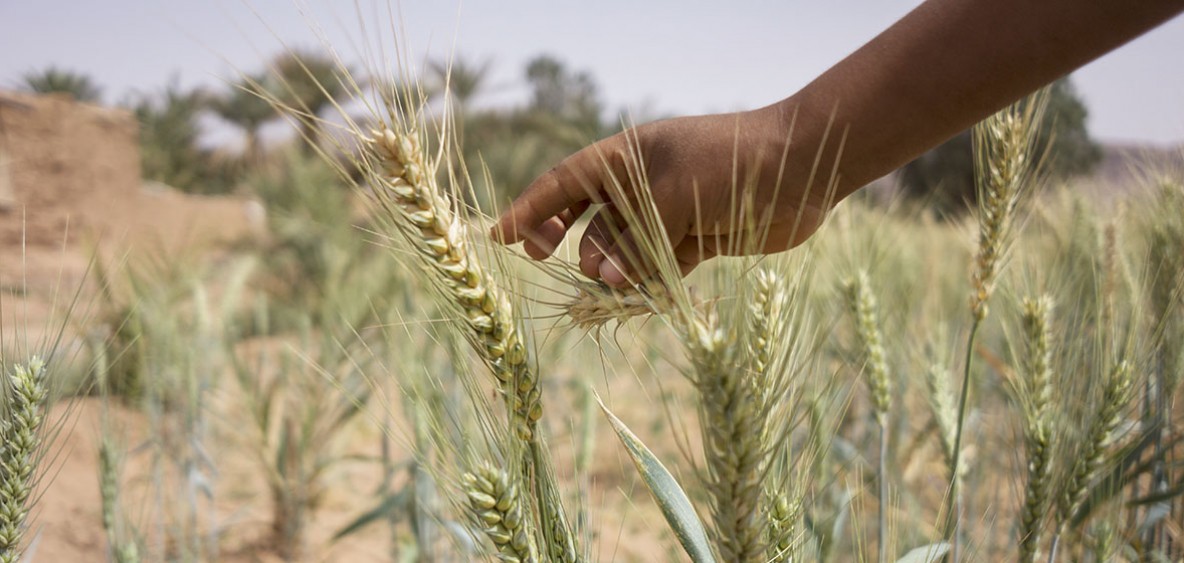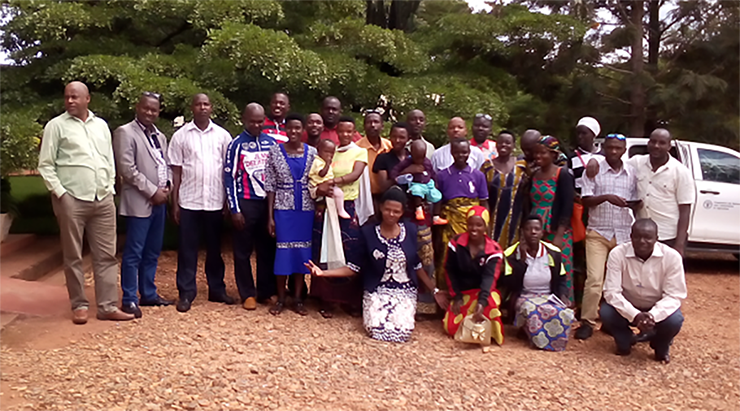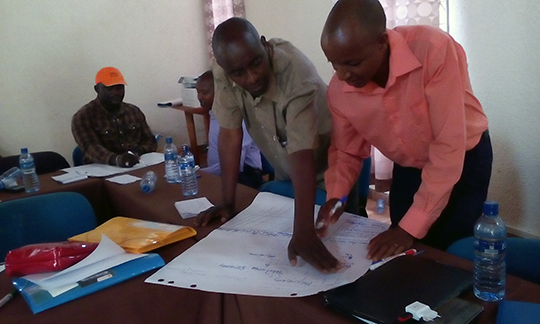
Participants involved in the RFS Burundi project attended a training session conducted by FAO and Bioversity to improve decision-making skills related to promoting genetic diversity.
Increasing the resilience of local food systems through better use and conservation of agrobiodiversity is key to food security. Ongoing loss of agrobiodiversity leads to higher vulnerability of plants and animals to climate change, pests and diseases, which puts food security and nutrition at risk. Diversification of production systems by using multiple species, breeds or varieties, and integration of crop, livestock, forest and aquatic biodiversity helps improve livelihoods and nutrition, while reducing the negative impact of pesticides on the environment. As such Resilient Food Systems has a strong focus on agro-biodiversity to build resilience in agriculture systems.
One of the twelve Country implementing projects that make up the Resilient Food Systems programme is based in Burundi and addresses sustainable food production and climate resilience in Burundi’s highlands. The negative effects of climate change in Burundi are increasingly jeopardizing water, agriculture, livestock, forest and human health. The decline in crop production is mainly driven by soil degradation, unsustainable practices and agrobiodiversity loss. The Burundian project aims to help farmers to improve soil health, diversify production systems, strengthen community management of seed, and increase access to seed diversity, which are the key strategies for better resilience and sustainability in smallholder agriculture.

FAO, the main implementer of the project, partnered with Bioversity International to conduct a training on how to assess diversity and constraints for its better use and conservation with participatory diagnostic techniques developed under the Diversity Assessment Tool for Agrobiodiversity and Resilience (DATAR). This decision-making tool was created to help project actors to assess diversity and devise interventions that promote the use of crop, livestock, or aquatic genetic diversity to increase productivity and resilience. More specifically, the purpose of DATAR tools are to identify and characterize local crop varieties and breeds, and to identify ways to improve access, selection, and sharing of crop and animal genetic diversity at the community and national levels.

The participants of the training, which took place in Gitega, once of the project sites included farmers, officers from the agriculture, livestock and environment sectors, researchers and project leaders. They were presented with participatory DATAR tools and gained hands on experience on using the different methods. The aims of the training were to equip the participants with knowledge and practical experience of how to collect sound data using participatory diagnostics as well as how to establish and manage community seedbanks. In addition, support the project team in community-level conservation, the training presented the principles and concepts of community seedbanking, which is a key strategy for conserving but also for increasing access to good quality seed in diversity. The participants concluded that conserving and using different varieties of crops is a critical issue, highlighting concerns on the loss of local maize varieties that are productive and resistant to pests and diseases. These local varieties are being replaced by hybrid maize seeds that are expensive and require inputs that may not be affordable to farmers.
Subscribe to our monthly newsletter to receive updates on stories directly from the field across all our projects, upcoming events, new resources, and more.